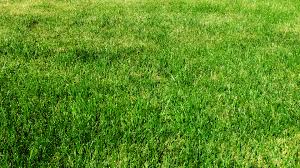grass
英 [ɡrɑːs]
美 [ɡræs]
- n. 草;草地,草坪
- vt. 放牧;使……长满草;使……吃草
- vi. 长草
- n. (Grass)人名;(法、德、俄、瑞典、英)格拉斯
使用频率:

记忆方法
记忆单词“grass”可以采用以下简单方法:
将“grass”分解为“gras”部分和“s”结尾。想象一片绿色的草地(green grass),专注于“绿色”(green)的视觉形象,以及草地上的草(grass)这一事实,以此来强化记忆。
将“grass”分解为“gras”部分和“s”结尾。想象一片绿色的草地(green grass),专注于“绿色”(green)的视觉形象,以及草地上的草(grass)这一事实,以此来强化记忆。
以上内容由AI生成, 仅供参考和借鉴
中文词源
grass 草
来自PIE*ghre, 生长,变绿,词源同grow, green.
英语词源
- grass
-
grass: [OE] Reflecting its status as the commonest and most obvious of plants (and, for agricultural communities, the most important), grass etymologically simply means ‘that which grows’. It comes from *grō-, *gra-, the prehistoric Germanic base which also produced grow (and green). This gave the noun *grasam, from which German and Dutch get gras, Swedish gräs, and English grass.
=> graze, green, grow - grass (n.)
- Old English græs, gærs "herb, plant, grass," from Proto-Germanic grasan (cognates: Old Norse, Old Saxon, Dutch, Old High German, German, Gothic gras, Swedish gräs), from PIE *ghros- "young shoot, sprout," from root *ghre- "to grow, become green" (related to grow and green, but not to Latin gramen).
As a color name (especially grass-green, Old English græsgrene) by c. 1300. Sense of "marijuana" is recorded by 1932, American English. The grass skirt worn by people native to tropical regions is mentioned by 1874; the warning to keep off the grass by 1843 (in New York City's Central Park). Grass-fed of cattle, etc., (opposed to stall-fed) is from 1774.
权威例句
- 1. I let the horse drop his head to crop the spring grass.
- 我让马低下头啃吃春天的青草。
- 2. The windows overlooked a lawn of tall waving grass.
- 窗户外边是一块草地,高高的草随风摇摆。
- 3. Mr Zuma had a solid reputation as a grass roots organiser.
- 作为一个民众的组织者,祖玛先生名声甚佳。
- 4. The most recent tenants hadn't even cut the grass.
- 上一拨房客连草都没有修剪。
- 5. You have to join the party at grass-roots level.
- 你得参加基层党组织。
